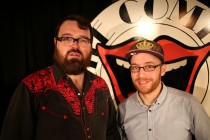Prime Minister Keir Starmer continues to announce government positions following last week’s General Election, where Labour won a landslide majority.
One of the latest appointments is Enfield North MP Feryal Clark, who becomes Parliamentary Under Secretary of State at the Department for Science, Innovation and Technology.
The announcement was made late on Tuesday, 9 July, with the Enfield North MP taking to social media to confirm her new role earlier today:
“It’s a huge privilege to have been asked to serve as Parliamentary Under-Secretary of State in @SciTechgovuk
“Super excited to be joining DSIT, the digital centre of government, delivering better services & using science and innovation to power growth.”
The Parliamentary Under Secretary of State is the lowest of three tiers of government minister in the UK, immediately junior to a Minister of State, which is itself junior to a Secretary of State.
Details about Clark’s responsibilities have yet been released, but the junior minister will serve alongside Peter Kyle, the Secretary of State for Science, Innovation and Technology, Sir Patrick Vallance, who is the Minister of State for Science, Research and Innovation, Sir Chris Bryant MP, Minister of State, and Baroness Jones of Whitchurch, who has also been appointed Parliamentary Under Secretary of State.
Feryal Clark’s political career started back in 2006, when she was elected a Labour councillor in Hackney. She went on to become the Deputy Mayor of Hackney and Cabinet Member for Health, Social Care, Leisure and Parks.
The Turkiye-born politician first stood for Parliamentary election in 2019, succeeding at the first attempt, making history at the same time as Labour’s first ever Kurdish Alevi MP.
It’s a huge privilege to have been asked to serve as Parliamentary Under-Secretary of State in @SciTechgovuk
Super excited to be joining DSIT, the digital centre of government, delivering better services & using science and innovation to power growth. pic.twitter.com/IEprUlLGvb
— Feryal Clark MP (@FeryalClark) July 11, 2024
The 45-year-old Labour politician was re-elected to Parliament for a second term last week after winning nearly half of all votes cast in the North London seat (49.1%), beating six other candidates in the process.
Clark has a science background, having studied Bioinformatics at the University of Exeter.





